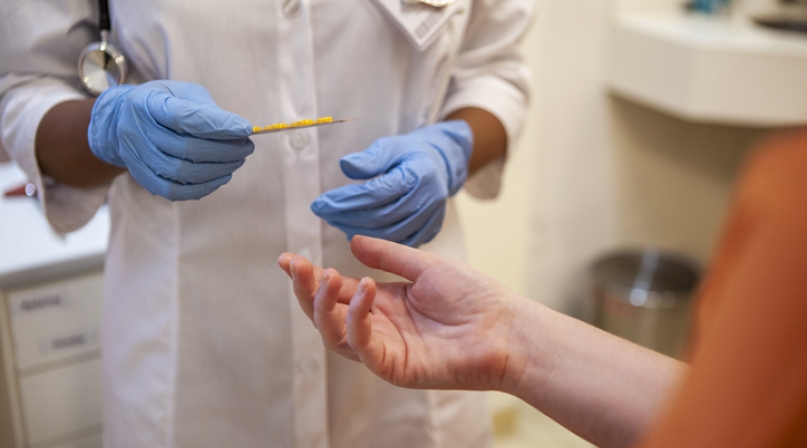CMS releases guidance on new opportunity for pre-release Medicaid coverage for incarcerated individuals
Author

Blaire Bryant
Upcoming Events
Related News

Key Takeaways
On April 17, the Centers for Medicaid and Medicaid Services (CMS) released guidance on a new Medicaid Reentry Section 1115 demonstration opportunity to increase access to community-based health care and improve care transitions for incarcerated individuals prior to their release back into the community.
The demonstration opportunity will effectively amend the Medicaid Inmate Exclusion Policy (MIEP) in selected states by allowing incarcerated individuals to receive health services under Medicaid at least 30 days prior to release from jail or prison. As a part of this demonstration opportunity, counties in participating states will have the opportunity to expand access to vital mental health and addiction services, decreasing recidivism and improving health outcomes for individuals reentering the community while reducing healthcare and criminal justice costs.
The guidance outlines a minimum set of pre-release services that CMS expects state proposals to include in order to be considered “sufficiently robust” enough to improve care transitions. These services include:
- Case Management to assess and address physical and behavioral health needs
- Access Medication Assisted Treatment (MAT)
- A 30-day supply of all prescription medications provided to the beneficiary immediately upon release from the correctional facility
States that are granted approval for participation in the demonstration will receive an enhanced federal matching rate to support Medicaid eligibility and redetermination systems reform related to the implementation of the demonstration opportunity. If a state needs time to modify systems to make changes to its eligibility and enrollment processes, CMS will offer a path of up to two years from approval for a state to make the necessary changes.
Only states that suspend, rather than terminate, and individual’s Medicaid eligibility upon incarceration will be eligible for participation in the demonstration opportunity. Additionally, to increase the likelihood of approval, state waiver applications should:
- Ensure that only allowable benefits are covered and paid for during incarceration
- Engage individuals with lived experience in both the design and implementation of a state’s proposal
- Be budget neutral
- Include a detailed implementation plan with timelines and associated milestones
- Include a reinvestment plan for federal matching dollars for the duration of the demonstration period
To read the full letter, click here.
Counties are committed to improving care continuity and long-term health outcomes for individuals who are justice involved. As fiscal contributors and administrators of the Medicaid program and operators of over 91 percent of all local jails, counties will be critical partners in the design and implementation of Medicaid Reentry Section 1115 demonstrations.
In January, California became the first state to cover certain health care services for individuals transitioning back to the community up to 90 days prior to their release. This latest guidance from CMS will create new pathways for approval of pending and new state 1115 demonstration waivers.
Additional Resources
Related News

DHS funding set to lapse, putting key county partners at risk of a partial shutdown
The U.S. Department of Homeland Security (DHS) is headed toward a funding lapse at 12:01 a.m. ET on Feb. 14 after the Senate failed this week to advance legislation to fund DHS for the remainder of Fiscal year (FY) 2026.

Drug tracking software helps counties identify trends, save lives
Florida counties are using an artificial intelligence tool called Drug TRAC to track and report drug trends, with the aim of providing quicker outreach and saving lives.

SBA issues new rule affecting local permitting in post-disaster rebuilding
The U.S. Small Business Administration (SBA) has issued an interim final rule that changes how rebuilding projects financed with SBA disaster loans following a Presidentially declared disaster interact with state and local permitting requirements.